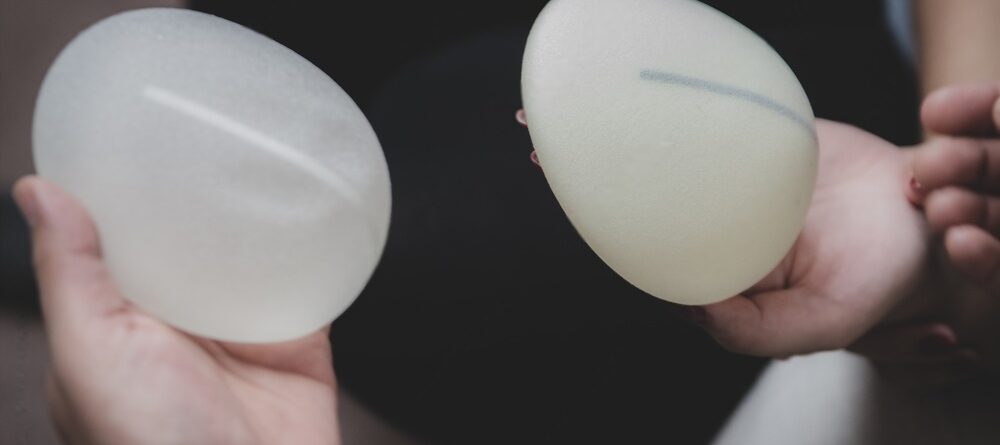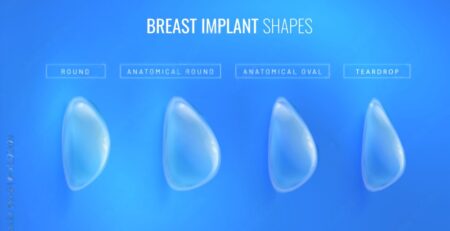Breast Implant Rupture: What You Need to Know
Dr. Abizer Kapadia2024-05-09T08:49:02+00:00Introduction
One of the most popular cosmetic procedures, breast implantation or augmentation, has provided great results for many individuals and helped them achieve their aesthetic goals, therefore boosting their confidence. Although breast implants have the purpose of lasting longer and being durable devices, they are just like any other device that can experience complications.
One of the main side effects that patients need to know about is breast implant rupture which can happen at any time. So, let’s get into the possible consequences that can occur and the measures that Dr Abizer Kapadia can provide to tackle this situation.
Understanding Breast Implant Rupture
A breast implant rupture is a big source of concern for those who are planning to get breast augmentation surgery done. It happens to the outer layer of the implant which may have torn, shattered or burst, therefore enabling the implant contents to leak into breast tissues. Although saline or silicone implants can rupture with different causation, the material used for an implant will determine its duration.
Breast augmentation rupture is an integral issue for patients who are planning or have already undergone surgery as outlined. Dr Kapadia informs you about the risks before you get the surgery done. He makes sure that people are aware of the possible complications.
Causes of Breast Implant Rupture
Some of the causes that may lead to breast implant rupture include the following:
- Trauma or Injury: A frontal blow to the breast area, for example, due to a car crash, fall or sports injury, can cause the breast implants to be subject to very severe forces. As a result, the shell of the implant may rupture due to being pressured.
- Surgical Error: If surgical techniques are not proper or get damaged during implant surgery, it can increase the risk of implant fragmentation. Factors, such as improper creation of the bond, excessive manipulation, and inadvertently damaging the implant shell can also reduce the ability and the integrity of the implant. Surgery may have significant incorrect conclusions if not carried out meticulously under surgeons’ inspection.
- Normal Wear and Tear: With extended duration, breast implants can bend, fold, and eventually tear due to gravity pressures, repetitive movements, and breast tissue evolution. This gradual decrease can make secure implants weak. Dr Kapadia’s regular checkups can provide a chance to monitor implant integrity and promptly address the signs of any deterioration.
- Capsular Contracture: When the marker placed inside the capsule contracts, it may result in pressing this implant shell, therefore, the capsule rupture risk increases. Bacterial contamination, implant texture, and genetic predisposition may play a part in capsular contracture occurrence. Dr. Kapadia practices modern-day surgery and preventive approaches that reduce the chance of capsular contracture development.
Symptoms of Breast Implant Rupture
The symptoms relating to a breast implant rupture might be very specific depending on the type of implant and degree of breakage. Common symptoms include:
- Changes in Breast Shape or Size: The breast may lose its usual shape or size seeming smaller and unequal. The alteration can come in the form of deflation or asymmetry.
- Breast Pain or Discomfort: In some cases, a feeling of breast pain and intermittent hardness of the breast could be a cause of unwanted discomfort.
- Visible Rippling or Wrinkling: These defects include localized wrinkles or ripples. It is usually found on the skin that covers round the external surface of the breast.
- Hardening of the Breast: The case of capsular contracture or texture changes in the chest regions arise as a failure of the implant and leads to rupture of the implants.
- Swelling or Redness: In the case of fluid leakage from either the silicone or salt solution, numerous possibilities can happen, such as lump reddening or swelling.
Diagnosing Breast Implant Rupture
If any of those symptoms occur in you or you happen to suspect a ruptured breast implant consult with Dr. Abizer Kapadia urgently. Establishing the cause of rupture on breast implants commonly requires a physical examination, scans such as an MRI or ultrasound, or even a surgical operation.
Treatment Options for Breast Implant Rupture
The treatment method of your ruptured breast implants will depend on your whole health status, as well as on the implant type and the rupture severity. Treatment options may include:
- Implant Removal: In case of implant rupture, healing the ruptured implant is not possible. So, Dr Kapadia will remove the damaged implant and install a new one.
- Capsulectomy: If tissue contracture occurs, the surgeon will perform a procedure of capsulectomy to excise scar tissue encasing the implant.
- Implant Revision Surgery: In other cases, Dr Kapadia will think about implant revision surgery to correct the aesthetic flaws or the asymmetrical shape of the breast.
Preventing Breast Implant Rupture
While breast implant rupture cannot always be prevented, there are steps you can take to minimize the risk:
- Choose an Experienced Surgeon: Dr. Abizer who is an experienced board certified physician with top-notch breast augmentation services can be of help in this situation, for he is most able to reduce the possibility of issues that could occur during surgery.
- Follow Post-Operative Instructions: With careful planning and a routine prescribed by Dr Kapadia, the possibility of implant rupture could be reduced.
- Attend Regular Follow-Up Appointments: Please make it a point to follow your appointments with Dr Kapadia and discuss any possible concerns that you have.
Conclusion
Breast implant rupture is a significant issue that should be addressed to ensure a safe and smooth recovery process. Dr. Abizer Kapadia, who focuses on patient-centred approach, is the best option if you have any post-breast implant surgery trouble. You can always lean on him, as he will give you his undivided attention and provide a proper sense of care. His top priority is to make sure you receive expert care with the best possible experience.




















